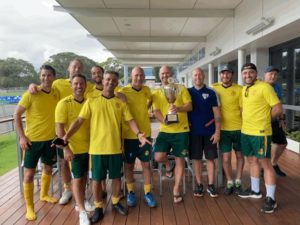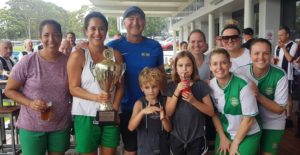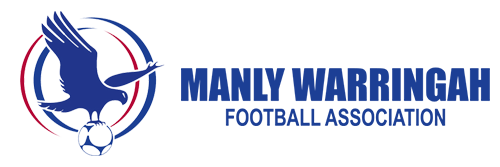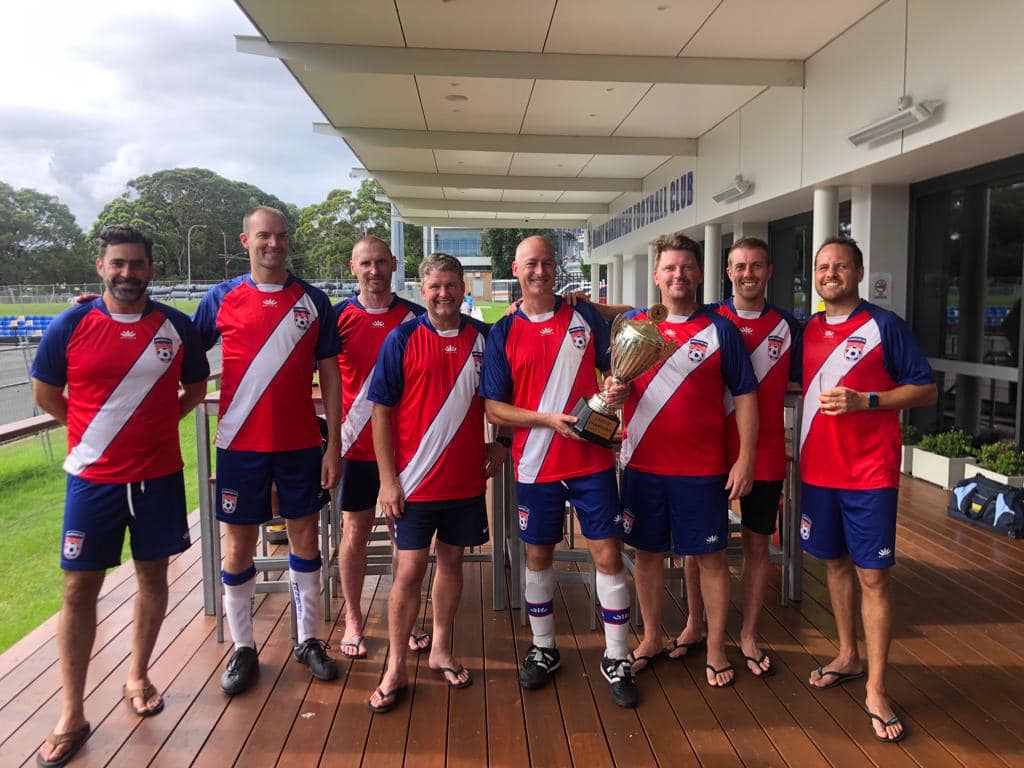Last Sunday, 27 February, saw 32 teams take to Cromer Park 2 for the 6th annual Defibrillator Cup but more importantly 300 players attended AED defibrillator training.
Defibrillator Cup is an annual gala day which sees predominately over age teams play 7 a-side games in a round robin against one another and primarily is a chance to train players on how to respond to a cardiac arrest and use an AED defibrillator.
Organised by John Tansley, Terry Gatward, John Haslen and many club and community volunteers, 48 games were played over eight competitions with Pittwater 30’s, Pittwater 40’s and Manly Allambie 40’s winning the women’s competitions.
Harbord and Curl Curl walked away as Over 35 division 2 and 4 champions. Whilst Wakehurst and Narrabeen won the men’s Over 45 division 2 and 3 and Beacon Hill winning the mixed competition.
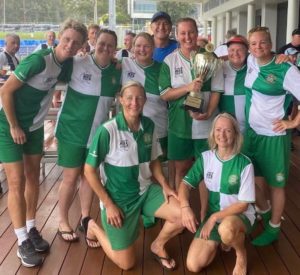
The Defibrillator Cup was born from Tansley and Gatward recognising the risk to over age teams playing football on the weekends and the importance of having access to and knowledge on how to use defibrillators.
“It’s important that teams have confidence to open up the defib and not be deterred by the technology. You can’t be overtrained in using an AED or dealing with the process.” Tansley said.
“Every team attends a session; they get a training session and a briefing session on how to use an AED defib.”
Reno Aprile ran all 12 training sessions on Sunday, which took the 300 attendees through how to respond to a cardiac arrest situation, how to use an AED defibrillator and highlights the chain of command and how a team would operate in a situation.
“Someone dials the ambulance; someone starts CPR, and another member gets the defib.
“These three clear instructions on how to deal with the situation is an important part of the training.” Tansley said.
This year the defibrillator training was opened to representatives from all 17 clubs, even if they were not participating in the gala day itself. This also gave all clubs the chance to bring their defibrillators down to Cromer Park and check that they were all in working order before the season kicks off.
Not only did players participate but the referees volunteered their time to make the day happen and Tansley could not speak more highly about them.
“They volunteer their time for the defib cup. They could be out earning money on high level matches, but they spend the time with us.”
“A lot of the referees attended the AED defibrillator training before or after their games and it’s really important the referees to be involved as well.”
Every year the Defibrillator Cup continues to teach new people on the defib process, with this year having 33% of participants attend their first ever AED defibrillator training session.
“Awareness is the most important part. It has certainly grown and there is definitely a whole lot more interest and attentiveness in the sessions.” Tansley said.
As well as many returning participants but as Tansley says “they have experience and knowledge and knowledge that can be relayed as well”.
MWFA would like to say a big thank you to all the organisers and volunteers who made Defibrillator Cup happen. It is a great day and one that is hugely important to the safety and wellbeing of our community.
